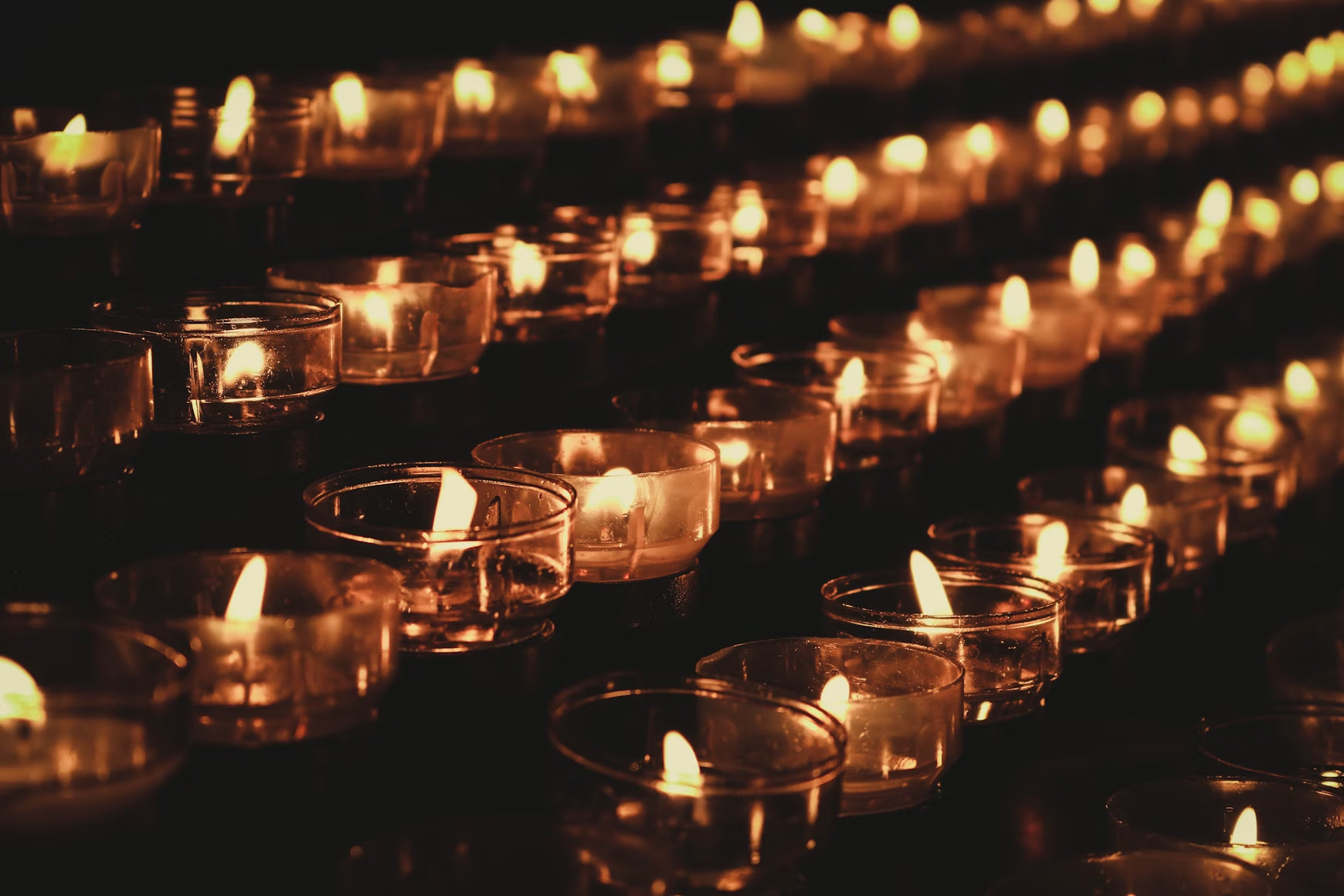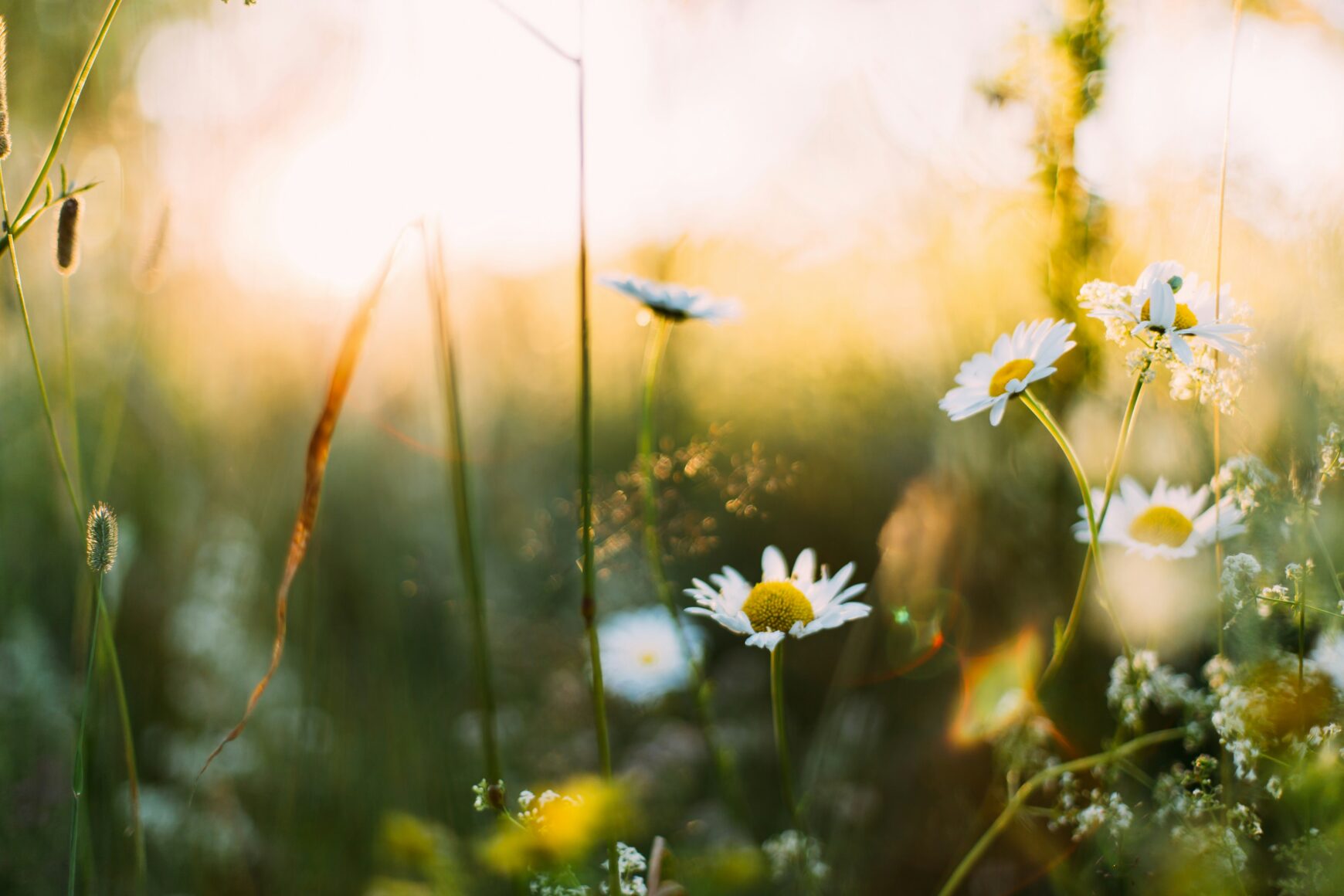The Importance Of Gratitude In A Time Of Darkness

Image Credit: Pascal Muller / Unsplash
As the days grow shorter in the northern hemisphere, I find myself drawn to the ancient ritual of observing the winter solstice—a time when darkness reaches its peak, but with the promise of returning light. In a world shrouded in shadows, the significance of this event feels particularly poignant for 2023.
As I have written before, I stepped out of my conventional career path to recalibrate how I can be of greatest service at a time of escalating crises. This slowing down has demanded a profound reckoning with the suffering in the world. It’s been too easy before, with the glorious chloroform of privilege, to numb myself to the suffering. To succeed in modernity demands that you just keep running in pursuit of your individualistic goals. But as I have paused to better understand my own family history, I have learned how recently my own ancestors suffered from the deeper trauma of displacement and migration. My paternal grandparents escaping the economic collapse of the South Wales Valleys in the 1920s, the family of my maternal grandfather, a Maclennan, enduring the Highland Clearances a century earlier and being moved down the Great Glen, combined with the lingering scars of parents born while bombs dropped in the Second World War. We forget how quickly things change. None of us are immune to the broader planetary changes that will disrupt even the most comfortable lives in the decades ahead.
I recently spent a week with other climate leaders and activists on retreat at Plum Village the Zen Buddhist Monastery in the South of France. The Centre was set up by Thich Nhat Hanh, a peace activist and refugee from the war in Vietnam, in the early 1980s and it has become a sanctuary for many over the years. Since then I have immersed myself in their course and book ‘Zen and the Art of Saving the Planet’ which I can’t recommend more highly. The teaching I have really sat with is the deeper truth of “interbeing,”: the idea that everything is interconnected, meaning that the well-being of one is linked to the well-being of all. Nhat Hanh wrote and spoke extensively on the idea – this beautiful short essay ‘Clouds in Each Paper’ is a helpful start.
Clouds in Each Paper
“If you are a poet, you will see clearly that there is a cloud floating in this sheet of paper. Without a cloud, there will be no rain; without rain, the trees cannot grow: and without trees, we cannot make paper. The cloud is essential for the paper to exist. If the cloud is not here, the sheet of paper cannot be here either.
So we can say that the cloud and the paper inter-are. “Interbeing” is a word that is not in the dictionary yet, but if we combine the prefix “inter” with the verb “to be”, we have a new verb, inter-be. Without a cloud, we cannot have paper, so we can say that the cloud and the sheet of paper inter-are.
If we look into this sheet of paper even more deeply, we can see the sunshine in it. If the sunshine is not there, the forest cannot grow. In fact nothing can grow. Even we cannot grow without sunshine. And so, we know that the sunshine is also in this sheet of paper.
The paper and the sunshine inter-are. And if we continue to look we can see the logger who cut the tree and brought it to the mill to be transformed into paper. And we see the wheat. We know that the logger cannot exist without his daily bread, and therefore the wheat that became his bread is also in this sheet of paper. And the logger’s father and mother are in it too.
When we look in this way we see that without all of these things, this sheet of paper cannot exist.”
— Thich Nhat Hanh
As I sit with the collective grief and horror of the present moment, I begin to understand every strand of suffering is interwoven into the fabric of our shared existence. To address any of the pressing issues of our time—be that the climate crises, the war in Gaza, industrial decline, refugee crossings – we must embrace this interconnectedness and foster deeper compassion and empathy for ourselves and others. We cannot ignore or escape this. It is a critical part of our shared work for the decades ahead. It feels like we are on a knife edge but the longer I sit in the discomfort a paradox emerges. In slowing down, I discover that embracing the pain, as opposed to running from it, deepens my capacity to love, deepens my sense of compassion. In acknowledging that I cannot escape the pain, I realise the power of choosing to sit with it. I wonder what new possibilities this might enable. What new futures might we dream.
And so, as the winter solstice approaches, my thoughts turn to the ancient celebration of Yule—a time when the world, wrapped in the longest night, finds solace in the promise of returning light. Yule, was a festival of profound significance, with its roots deeply embedded in the forests and traditions of northern Europe, the ancestral lands of my forebears. In the heart of winter, communities gathered to honour the enduring life of evergreen trees— symbols of resilience and life amid the harsh conditions. The Yule log, set ablaze, not only illuminated the darkness but also marked the rebirth of the sun. The fire served as a communal focal point for feasting and dancing, binding families, and villages together in shared warmth and hospitality. And it marked a time for giving tokens of good fortune and gifts to those less fortunate than yourself.
As the centuries unfolded, Yule underwent a transformation, intertwining with Christianity. The celebration of Christ as the light of the world found resonance in the symbolism of Yule. The radiant evergreen, adorned with candles and later with strings of twinkling lights, became a testament to the divine light breaking through the darkest of nights. The exchange of gifts, a practice rooted in the generosity of the season, was not simply about material giving but also the spiritual exchange of love and goodwill.
As we celebrate Yule, let us not only revel in the symbolic warmth of our hearths but also recognise the transformative power that arises when we bring our individual lights together. The true magic of this season lies in our collective ability to shine brightly as a community, each of us bringing our unique gifts to the world. Just as the combined glow of a myriad of candles illuminates the darkest corners of a room.
In the luminosity of Yule, let us also embrace the profound gift of gratitude. Gratitude for life, gratitude for family and friends, gratitude for our ancestors without whom we would not be here. Gratitude for the security we can too easily take for granted, and gratitude for the Earth.
The natural world, in all its diversity and beauty, bestows upon us a wealth of treasures that are not ours to hoard but ours to share and steward. In these recent months of deeper contemplation, I’ve come to realise that the true essence of our existence lies in recognising the abundance of gifts we’ve been given. The majesty of a sunrise painting the sky in hues of crimson and gold, the rhythmic melody of waves lapping the shore, and the gentle whisper of the wind through the trees—all these are not possessions but offerings from a world that invites us to marvel at its wonders. As we gather in celebration, let us extend our gratitude to all life. Yule serves as a poignant reminder that the beauty of the world is a shared inheritance, a collective treasure that unites us all – a global commons.
As we sit with gratitude, may we also pledge to be caretakers of the gifts we’ve received, ensuring they endure for generations to come. May this gratitude propel us into action, encouraging us to share the gifts bestowed upon us and cultivate a world where the gifts of community and the gifts of nature are cherished and safeguarded by all.

